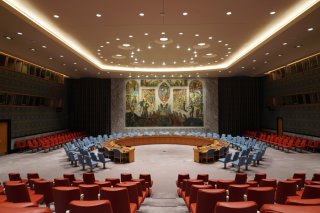Democratic Partnerships Against Autocratic Aggression
Global disorder perpetrated by authoritarian regimes means that democracies must work together to preserve freedom and peace.
In recent times, the world has borne witness to heinous acts of violence and aggression committed by authoritarian regimes. The actions of Hamas in Israel, supported by Iran, and Russia’s activities in Ukraine serve as stark reminders that autocratic governments not only oppress their own citizens but also threaten global peace. In the face of such challenges, it is imperative that democracies across the world come together with resolute determination to safeguard freedom and promote peace.
One fundamental truth is that democracies do not typically wage war against their fellow democratic nations. In contrast, autocracies often engage in acts of aggression and expansionism, frequently supporting one another in pursuing their revisionist goals.
The alliance between Russia, Iran, and North Korea is a glaring example. Russia acquires military equipment from these autocratic states, while they, in turn, offer diplomatic support to Russia on international platforms like the United Nations. Additionally, these nations bolster Russia economically by purchasing its energy resources and supplying products essential to its military industry.
Hamas, a terrorist organization, receives financial support, military equipment, and training from Iran, making its attacks on Israel possible. These conflicts, like all wars, are devastating. What makes them particularly heinous is the deliberate and widespread targeting of innocent civilians, including children, and the appalling acts of violence against women.
Democracies must unite to defend against autocratic aggression and to preserve global freedom and peace. Unfortunately, the United Nations, while a vital forum for international diplomacy, often falls short of delivering effective responses. Authoritarian regimes often vote for their counterparts in the General Assembly and exploit the veto system to paralyze the workings of the Security Council. Therefore, democracies must supplement their UN efforts with partnerships between like-minded nations dedicated to upholding world freedom and peace.
Several democratic partnerships already exist and have proven valuable, warranting reinforcement. NATO, one of history’s most successful military alliances, remains relevant in the face of Russia’s invasion of Ukraine. However, there is an urgent need to address the issue of too many NATO members failing to meet the alliance’s 2 percent military spending requirement.
The Quadrilateral Security Dialogue, comprising the United States, Japan, Australia, and India, promotes a free and open Indo-Pacific. This coalition should expand its security cooperation and broaden its contributions to encompass shared research in cutting-edge technologies. It could evolve into a “pentagonal” by inviting South Korea, another regional democracy with substantial military capabilities, to join its ranks.
The G-7, which brings together the largest industrialized democracies and the European Union, plays a crucial role in coordinating responses to the increasingly dangerous actions of autocracies. In light of these challenges, the G-7 should evolve into a G-9 by including Australia and South Korea, both advanced economies and vibrant democracies.
In addition to strengthening existing partnerships, there is a pressing need to establish new ones. For example, an economic version of NATO’s Article V should be formed to counter economic coercion by autocracies. Such protocols would enable democracies to retaliate against aggressive, autocratic regimes and provide economic assistance to the affected democracies.
Another essential coalition, a Tech-12, would comprise the top techno-democracies, including the G-7 nations, Israel, South Korea, the Netherlands, Taiwan, and Finland. Rapid technological advances, particularly in fields like artificial intelligence (AI) and telecommunications, impact every aspect of our lives. Technology must be harnessed for good and not manipulated by autocracies to oppress their citizens or undermine democracies. A Tech-12 coalition can ensure that democracies, not dictatorships, establish global technology standards.
Lastly, these partnerships should adopt an inclusive approach, welcoming imperfect democracies and even non-democratic states willing to counter the malign actions of aggressive and revisionist autocracies. The goal is not to certify perfect democratic behavior but to create a united front against autocratic threats.
The recent barbaric attack supported by Iran and Russia’s continued aggression in Ukraine stand as grave reminders that evil still exists in our world. Democracies must remain vigilant in defending global freedom and peace, and building partnerships is critically vital because unity amplifies strength.
Michael Fisch is the Founder and CEO of American Securities and a member of the Executive Committee of the Board of Directors of the Atlantic Council.
Dan Negrea is the Senior Director of the Atlantic Council’s Freedom and Prosperity Center and served as an official in the State Department from 2018 to 2021.
Image: Andrea Izzoti / Shutterstock.

